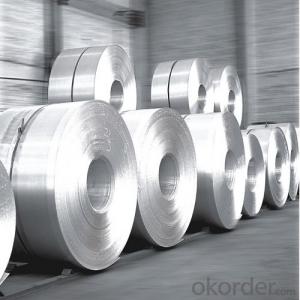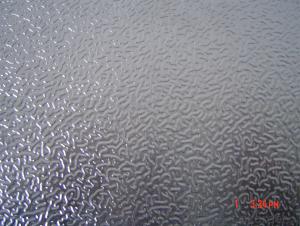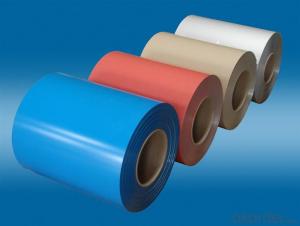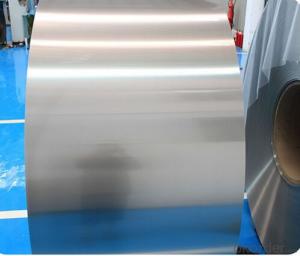Aluminum Coil 3003 for Truck Bodies with Competitive Price
- Loading Port:
- Shanghai
- Payment Terms:
- TT OR LC
- Min Order Qty:
- 5 m.t
- Supply Capability:
- 10000 m.t/month
OKorder Service Pledge
OKorder Financial Service
You Might Also Like
Item specifice
1.Structure of Aluminum Coil 3003 for Truck Bodies Description:
Aluminum alloys 1xxx series, 2xxx series, 3xxx series, 5xxx series, 6xxx series and 8xxx series. They are available in various sizes with thicknesses from 0.1mm to 500mm, widths from 10mm to 3, 000mm andlengths below 12m. Aluminium coil 3003 Mainly used in signs, billboards, building exterior decoration, bus body, high-rise buildings and factories wall decoration, kitchen sink, lamp, fan leaves, with pieces of electronic, chemical equipment, sheet metal processing parts, deep drawing or spinning hollowware, welding parts, heat exchangers, bell surface and disk,plate, kitchenware, decorations, reflective devices, etc
2.Main Features of Aluminum Coil 3003 for Truck Bodies:
High temperature resistant nano color coated aluminum coil
Weathering resistant pre painted aluminum plate
Scrubbing resistant pre painted aluminum roll
3. Aluminum Coil 3003 for Truck Bodies Images:
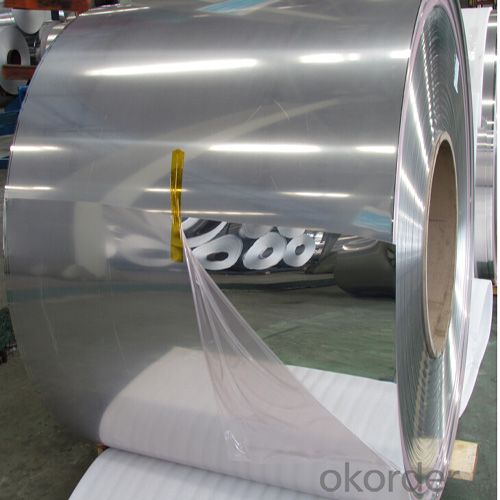
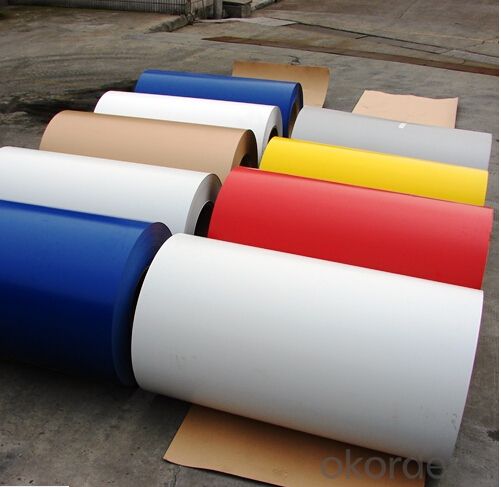
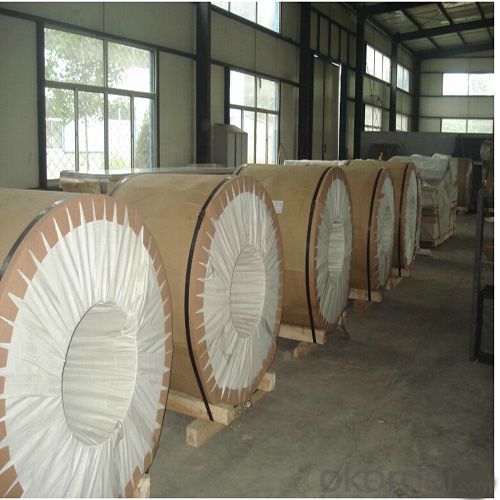
4. Aluminum Coil 3003 for Truck Bodies Specification:
| Aluminum Alloy: | AA1100,1050,3003,3004,3005,3105,5005,O-H112,ETC. |
| Temper: | H16,H18,H22,H24,H26,H28 |
| Aluminum Alloy Thickness: | 0.08mm~1.2mm(0.08,0.18,0.28,0.38,0.48,0.6,0.8,1 mm) |
| (0.1,0.15,0.25,0.35,0.45 mm) | |
| Coil Width: | 30~1520mm pre painted aluminum coil for Truck body |
| Core Diameter: | 150/405/505mm |
| Coil Weight: | 1~2.5tons each coil |
| Coating Type: | PE,PVDF,back coatting,ACRYLIC,feve |
| Surface Type: | Smooth,Embossed,mill finish,coated,brushed,etc. |
| Glossness: | 10-90%(EN ISO-2813:1994) |
| Coating Thickness: | PE:more than 18 +-1micron |
| PVDF:more than 25+-1micron | |
| Back Coating:8~10+-1micron |
5.FAQ
Q1.How long have you been in this product?
A1:More than 10 years.
Q2. What's the minium quantity(MOQ)?
A2. 5 Metric tons
Q3. How long is shipping time?
A3. 7 (ready-made products)-25 days(OEM)
Q4. How do you guarantee the quality?
A4. 1. Cooperating and Exchaning experience with sevral quoted aluminum companies
2. Japanese and Swiss production line and skilled works (regular training and testing)
3. more than 10 years production experience.
Q5. Do you have after sale service?
A5. Yes. Any quality problem occurs within one year, pls take photoes,we will be responsible.
- Q:Can aluminum coils be used for food processing conveyor systems?
- Aluminum coils are a viable option for food processing conveyor systems. The food processing industry favors aluminum for its advantageous properties. To begin with, aluminum's lightweight nature facilitates effortless installation and transport. This aspect proves especially valuable for conveyor systems that necessitate frequent reconfiguration or relocation. Moreover, aluminum exhibits exceptional resistance to corrosion, a pivotal attribute in food processing environments where exposure to moisture, chemicals, and food particles is prevalent. Additionally, aluminum's hygienic attributes make it easy to clean and maintain, ensuring adherence to food safety standards. Lastly, aluminum coils can be effortlessly molded and customized to meet the specific requirements of conveyor systems, thereby facilitating efficient and effective food processing operations. Consequently, aluminum coils emerge as a fitting choice for food processing conveyor systems.
- Q:What is the balanced equation for copper (I) oxide and Aluminum?
- Copper(I) oxide is a solid and so is aluminum. Any reaction that might occur would have to be at an elevated temperature. This is a thermite reaction in which copper(I) is reduced to copper metal (molten) and aluminum is oxidized to aluminum oxide. 3Cu2O(s) + 2Al(s) -- 6Cu(s) + Al2O3(s) ========= Follow up ========== Do you mean in aqueous solution? There won't be any copper(I) chloride in aqueous solution. CuCl is very insoluble in water, but will undergo disproportionation to form Cu2+ ions and copper metal. Therefore, you would actually have a solution of copper(II) chloride. Copper(II) chloride will react with aluminum to form copper metal and aluminum ions. Ordinarily aluminum won't react with copper(II) ions. The reaction does proceed in the presence of chloride ion. This is because the chloride ion will react with the Al2O3 layer on the surface of aluminum metal to make [AlCl4]^- which exposes the aluminum metal below, and thus a reaction can occur. 3Cu2+ + 2Al(s) -- 2Al3+ + 3Cu(s)
- Q:Are aluminum coils suitable for marine environments?
- Yes, aluminum coils are suitable for marine environments. Aluminum has excellent corrosion resistance properties, making it a popular choice for marine applications. It forms a protective oxide layer that prevents further corrosion, making it ideal for withstanding the harsh saltwater and humid conditions found in marine environments. Additionally, aluminum coils are lightweight, durable, and easy to maintain, making them a reliable option for marine applications.
- Q:I am trying to electropolish the surface of a 3003 aluminum sample to analyze in the SEM. I was wondering if anyone knew what electrolyte and electropolishing paramaters work for this alloy. So far I have used phosporic+ethanol+water at 50V for 2 minutes with minimal success.
- Aluminium needs deoxidizing also called as desmutting after electropolishing. This is done in a hot chromic acid bath for nearly for 5 minutes.
- Q:Can aluminum coils be used in the manufacturing of aircraft parts?
- Yes, aluminum coils can be used in the manufacturing of aircraft parts. Aluminum is a lightweight and durable material that is widely used in the aerospace industry due to its high strength-to-weight ratio and corrosion resistance. The coils can be formed and machined into various components such as fuselage skins, wings, and structural frames, making them an ideal choice for aircraft manufacturing.
- Q:Can aluminum coils be used in the production of aluminum gutters?
- Yes, aluminum coils can be used in the production of aluminum gutters. Aluminum coils are commonly used in the manufacturing process of aluminum gutters to form the desired shape and dimensions of the gutter system.
- Q:Are aluminum coils suitable for medical equipment applications?
- Indeed, medical equipment applications can find aluminum coils to be a fitting choice. This is due to the lightweight nature of aluminum, its resistance to corrosion, and its highly commendable thermal conductivity properties. These characteristics render aluminum to be a material of choice for a variety of medical equipment applications, including cooling systems, heat exchangers, and MRI coils. Moreover, the malleability and ease of fabrication of aluminum coils allow for the creation of intricate shapes, thus facilitating customization to meet the specific needs of medical equipment. Nevertheless, it is worth mentioning that the suitability of aluminum coils for medical equipment applications may also hinge upon other factors, such as the particular medical device, regulatory prerequisites, and industry standards.
- Q:Are there any restrictions on the coil thickness of aluminum coils?
- Yes, there are certain restrictions on the coil thickness of aluminum coils. The thickness of aluminum coils may vary depending on the specific application and manufacturing process. However, it is generally limited by practical constraints such as the equipment capabilities, handling and transportation considerations, and the desired properties of the final product.
- Q:What are the energy efficiency benefits of aluminum coils?
- Aluminum coils offer a multitude of energy efficiency advantages, making them highly preferred across different industries. To begin with, aluminum possesses superb heat conductivity, enabling efficient transfer of thermal energy. This characteristic proves especially beneficial in the HVAC sector, where aluminum coils find wide usage in air conditioning and refrigeration systems. The high thermal conductivity of aluminum ensures swift absorption or release of heat, resulting in quicker cooling or heating processes and reduced energy usage. Moreover, aluminum coils exhibit exceptional resistance to corrosion, ensuring their long-term efficiency. Unlike other metals that may deteriorate when exposed to moisture or chemicals, aluminum remains unaffected, guaranteeing optimal heat transfer efficiency throughout the coil's lifespan. By preserving the coil's performance, energy losses arising from diminished heat transfer are minimized, leading to energy savings and improved system efficiency. Another notable advantage of aluminum coils lies in their lightweight nature. In comparison to traditional copper coils, aluminum coils are significantly lighter, making them easier to handle during installation and maintenance. The reduced weight also translates into lower energy requirements for transportation, resulting in decreased carbon emissions associated with shipping. Additionally, aluminum is a recyclable material, rendering it environmentally friendly and sustainable. The recycling process for aluminum necessitates considerably less energy compared to primary production, leading to reduced greenhouse gas emissions. By opting for aluminum coils, businesses can actively contribute to a more sustainable future by diminishing their carbon footprint. In conclusion, the energy efficiency benefits offered by aluminum coils are wide-ranging. Their exceptional thermal conductivity, corrosion resistance, lightweight nature, and recyclability make them an ideal choice for a variety of applications, resulting in decreased energy consumption, enhanced system performance, and a more sustainable environment.
- Q:When they say to coat entire roof system with Aluminum coating, what does that mean? The area to coat is NOT the ceramic barrel tiles of a roof but the flat section covered with tar paper and granules of shiny sand. Is it a liquid? Clear? Good for the roof.? How is it applied?
- Why you would be coating a flat roof with Aluminum coating is beyond anything I have learned. Flat roofs should have a felt and tar coating to water proof them. Aluminum roof coating is used mostly on mobile homes to reflect heat because mobile homes don't have attics to trap the heat and carry it to vents. It also seals the water out at the metal seams. Aluminum coating is a type of polymer that has aluminum flakes in it. It is brushed on like a thick coat of paint and allowed to dry.
1. Manufacturer Overview |
|
|---|---|
| Location | |
| Year Established | |
| Annual Output Value | |
| Main Markets | |
| Company Certifications | |
2. Manufacturer Certificates |
|
|---|---|
| a) Certification Name | |
| Range | |
| Reference | |
| Validity Period | |
3. Manufacturer Capability |
|
|---|---|
| a)Trade Capacity | |
| Nearest Port | |
| Export Percentage | |
| No.of Employees in Trade Department | |
| Language Spoken: | |
| b)Factory Information | |
| Factory Size: | |
| No. of Production Lines | |
| Contract Manufacturing | |
| Product Price Range | |
Send your message to us
Aluminum Coil 3003 for Truck Bodies with Competitive Price
- Loading Port:
- Shanghai
- Payment Terms:
- TT OR LC
- Min Order Qty:
- 5 m.t
- Supply Capability:
- 10000 m.t/month
OKorder Service Pledge
OKorder Financial Service
Similar products
New products
Hot products
Hot Searches
Related keywords
